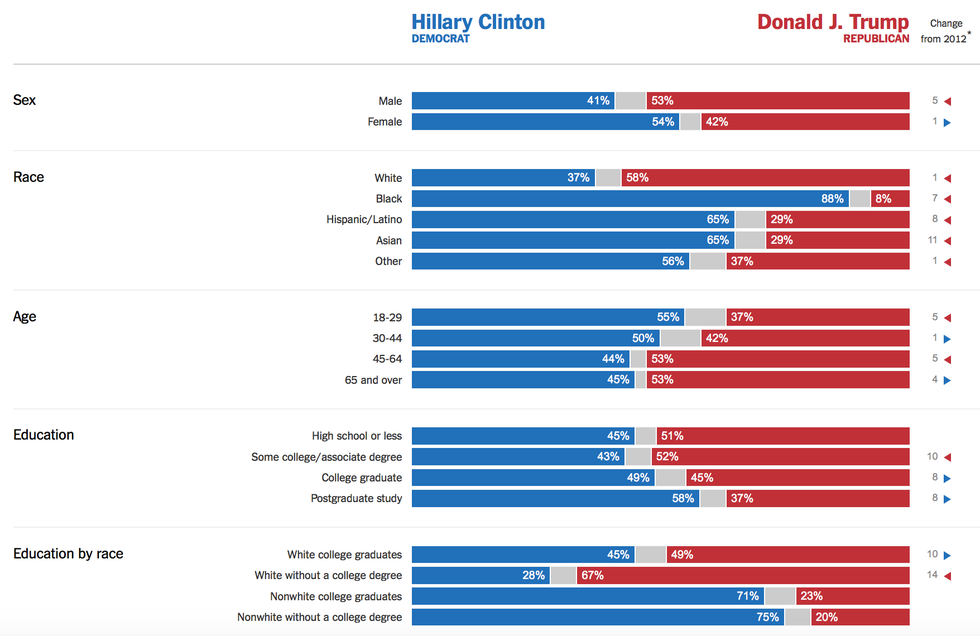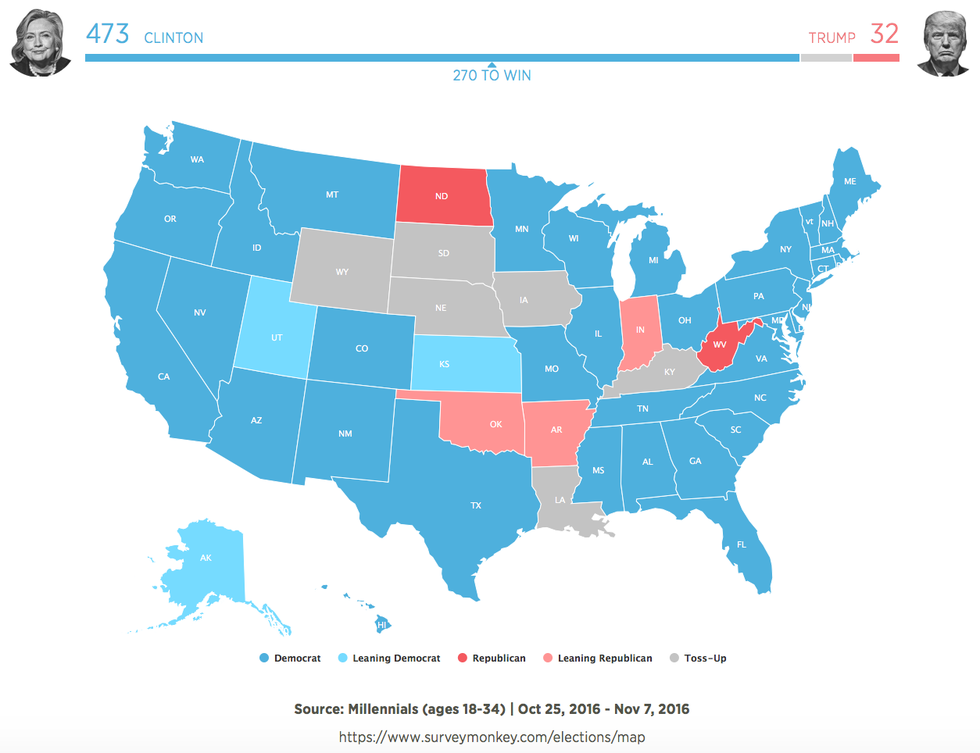The night of November 8 was spent in the company of my friends — other Berkeley graduate students hailing from many states all over the country. We had our eyes glued to phone, computer, and TV screens for several hours, and witnessed a wholly different sort of America than any of us were familiar with. I had always considered myself politically aware, even more so in recent times, and I have personally experienced a range of political cultures around the country. I thought I had a pulse on the complex beating heart American politics. I was wrong. I was somehow completely oblivious to how literally half of America felt and what it wanted.
Was it because I decided to ignore all the claims and demands of Donald Trump’s supporters? No, but I believed there were much grander problems at stake. Am I so used to seeing the world through blue-tinted glasses that I’m incapable of empathizing with those I disagree with? Perhaps, but I was always cautious of my liberal insulation, and I never thought I could wrong to such a degree. My family and I moved to Hattiesburg, Mississippi from Dhaka, Bangladesh in 2008. My very first, very real interaction with America was the perpetually red, conservative, Christian, Deep South. My perspective of America had always been that of hope, freedom, and opportunity. When I was a child, America had always been the epitome of modern society, where everyone can follow their dreams, progress was relentless, and freedom was valued above all. But that view was challenged harshly as soon as we arrived in Mississippi as a family of Muslim foreigners who spoke English as a second language. I went to high school for two years, during which I witnessed America optimistically elect its first black President. I followed that with four years of college in Mississippi. There was racism and ignorance every step of the way. But throughout it all, I encountered amazing people with enormously varied politics and backgrounds, so many of whom made me feel welcome as an immigrant and a friend, who stood with me in dark times and celebrated with me when I was naturalized as an American citizen. Many of those same people who I still call close friends voted for Mitt Romney in 2012, while I voted to reelect Barack Obama. After college I moved to Washington, D.C., and saw firsthand how complicated the American political beast is. I had friends who were Democrats or Republicans or neither. I respected them all, and they respected me.
I no longer recognize that America today, because I was wrong. My impression of America was based entirely on the bubble I was in, and not on America itself. Maybe, after all, I’m not wanted here by half the population of this country. Maybe I am justified in being afraid for my parents still residing in Mississippi. Maybe America is not the bastion of liberty, opportunity, and justice I once thought it was.
Election exit polls. Source: The New York Times.
Although I do believe a large portion of Donald Trump’s supporters found in him an avenue to air their ingrained prejudices and xenophobia, I also believe that he appealed to a large number of other voters because of his outsider anti-establishment status, his repeated promises of changing the government status quo, and bullish immigration policy. None of that is surprising; a big part of the American population has always supported those sorts of positions. There is nothing wrong about voting for your interests in an election. However, what strikes me as most difficult to process is the fact that Trump’s voters chose to vote their interests and not their conscience, and chose to ignore the hate, fear, and bigotry he incited against groups of fellow Americans. Vaguely-defined tax breaks were chosen over the safety of Muslim-Americans. Bare-knuckle political incorrectness was chosen over the rights and respect of women. The possibility of paying a little less on your insurance premium was favored over the giving all Americans access to healthcare. Denial about America’s rampant racism won over the dignity of immigrants, LGBTQ+ persons, and black Americans. In short, every vote for Donald Trump that chose to ignore his hate-speech and disrespect to other Americans is equivalent to a vote in support of those very same things. If you voted for him and claim that you only did it because he has better policies, then remind yourself of the privilege you enjoy that allows you to completely discount racism and sexism against your fellow countrymen and -women in favor of maintaining your convenient way of life.
The majority of Trump’s votes came from working-class white men1, who are inarguably one of the least disenfranchised people in America. Yet, the feeling of underrepresentation by the government had apparently reached a tipping-point in this election, which drove millions of the “silent majority” to the polls to vote in Donald Trump. Trump, a billionaire reality-TV star who so many people somehow found to be relatable and a champion of the common (white middle-class) man. Am I saying the interests of this swath of the population do not matter at all? Absolutely not, and they have legitimate concerns that everyone can sympathize with. But the fact remains that the person America elected into office represents so much more, that so many voters chose to ignore (or in some cases, support).
How millennials influence the election. Source: SurveyMonkey.
Maybe I was wrong about America. Maybe we’ve already seen the worst of America, or maybe that is still to come. But if this election has taught me anything, it’s taught me that America has a long way to go still, and we have to be the ones to take it there. In spite of what we’ve seen so far, I believe we have seen the best America has to offer, and I believe we will again. We have seen Barack and Michelle Obama lead this country with grace and dignity. We have seen Hillary Clinton wage a campaign of positivity and progress. We have seen Bernie Sanders ignite a revolution within the new generation. We have seen more millennials across the country vote for change and progress than ever before. We have seen ourselves uplift and support one another while participating in the political process. We are Muslims, we are undocumented, we are LGBTQ, we are black, Latino, men, women, and above all, we are America. We will see each other beyond our personal politics, and we will fight for each other’s rights. We will not give in to hatred and fear. We will love one another and continue loving this country, because we will be stronger together by moving forward together. We will go high when others go low. We’ve seen darkness, but we’ve seen the light too, and that light will never die as long as we keep fighting. As they say, Fiat Lux.
References:
- Election 2016: Exit Polls. The New York Times. Updated November 8, 2016. http://www.nytimes.com/interactive/2016/11/08/us/politics/election-exit-polls.html. Accessed November 9, 2016.


























